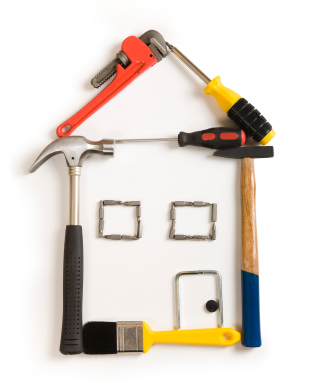UPDATE: HUD HAS ANNOUNCED THIS WAIVER WILL BE EXTENDED THROUGH DECEMBER 2014.
HUD recently announced they will extend their anti-flipping waiver through December 2012. From HUD:
In an effort to continue stabilizing home values and improve conditions in communities experiencing high foreclosure activity…[HUD] will extend FHA’s temporary waiver of the anti-flipping regulations.
With certain exceptions, FHA regulations prohibit insuring a mortgage on a home owned by the seller for less than 90 days… The new extension will permit buyers to continue to use FHA-insured financing to purchase HUD-owned properties, bank-owned properties, or properties resold through private sales. It will allow homes to resell as quickly as possible, helping to stabilize real estate prices and to revitalize neighborhoods and communities.
The extension is effective through December 31, 2012, unless otherwise extended or withdrawn by FHA. All other terms of the existing Waiver will remain the same. The Waiver contains strict conditions and guidelines to prevent the predatory practice of property flipping, in which properties are quickly resold at inflated prices to unsuspecting borrowers. The Waiver continues to be limited to sales meeting the following conditions:
- All transactions must be arms-length, with no identity of interest between the buyer and seller or other parties participating in the sales transaction.
- In cases in which the sales price of the property is 20 percent or more above the seller’s acquisition cost, the Waiver will only apply if the lender meets specific conditions and documents the justification for the increase in value.
- The Waiver is limited to forward mortgages, and does not apply to the Home Equity Conversion Mortgage (HECM) for purchase program. [Reverse Mortgages]
In addition to what HUD covered in their email on Friday, the waiver also specifies that:
- the sale must be by the owner of record
- the property may not have been a repeatedly “flipped” over the past year
- the property was marketed openly and fairly
When a home is being resold 20% or higher than what the seller purchased the property for in less than 90 days, often times a second appraisal will be required and the seller will need to show documentation to support the increased value in the home, such as receipts for the improvements made. A property inspection report will also be required by the lender to assure the quality of the improvements made to the property. Any health or safety issues disclosed by the property inspection will need to be corrected.
If a home has been re-sold withing 91-180 days at more at 100% or more than the seller’s acquisition cost, the same conditions will apply. If a second appraisal is required, the home buyer is not allowed to pay for it per HUD. Thanks to LO Comp, which the Fed passed in April, your friendly mortgage originator cannot use their commission to pay for this cost either.
Investors who are reselling in a short period of time for a much higher amount than their acquisition cost should be prepared for the cost of the second appraisal when the buyer is using FHA for financing. Folks should also retain detailed records of improvements (including all receipts) when they’re planning to quickly resale a home. The seller’s acquisition cost is the sales price of the home, plus the seller’s closing cost, including real estate commissions. It does not include any repairs.
If you are considering buying a home located anywhere in Washington State, I’m happy to help you! Click here for a mortgage rate quote for homes located anywhere in Washington. I’ve been originating home loans at Mortgage Master Service Corporation since April 2000, including FHA insured loans.


 One benefit of FHA insured mortgages is that they are assumable to qualified buyers. This means that if you have an FHA insured mortgage at today’s low rates and you’re selling your home during a higher mortgage rate environment, being able to offer a lower rate to potential buyers could provide a distinct advantage over other competing listings.
One benefit of FHA insured mortgages is that they are assumable to qualified buyers. This means that if you have an FHA insured mortgage at today’s low rates and you’re selling your home during a higher mortgage rate environment, being able to offer a lower rate to potential buyers could provide a distinct advantage over other competing listings. 






Recent Comments